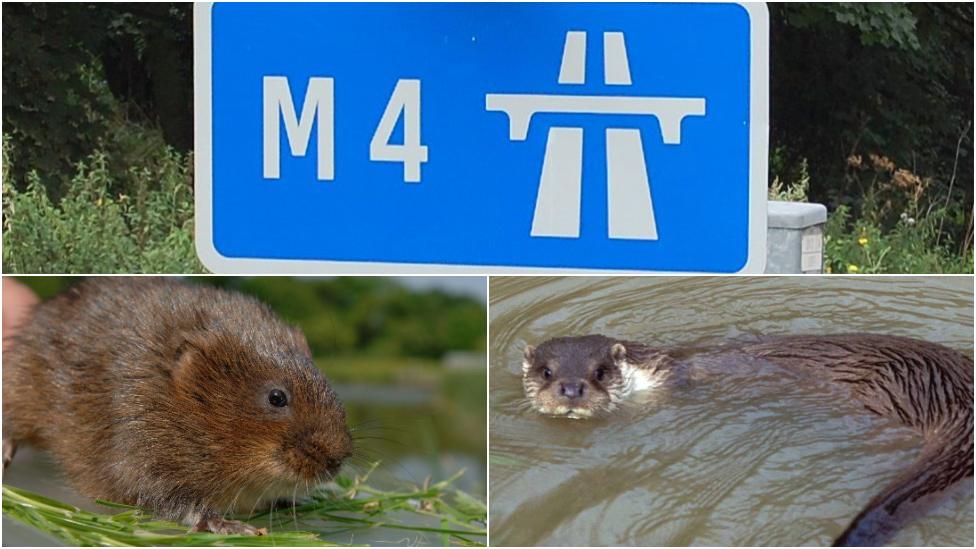Newport's M4 relief road delayed and to cost £135m extra
- Published
- comments
This video reveals the possible route of the M4 relief road
The proposed M4 relief road is to cost an extra £135m and the opening will be delayed by two years, it has been revealed.
The move means the Welsh Government can carry out improvements at Newport docks.
It expects the measures will result in the port's owners, Associated British Ports (ABP) withdrawing its objections to the favoured black route.
The 10% rise in costs will take the bill for that option to £1.3bn.
The proposals - first put forward 25 years ago - are for a 15-mile (24km) motorway and six-lane bridge over the River Usk to ease traffic problems from the bottleneck at the Brynglas tunnels.
ABP has a special status which means its objection to the proposed motorway stretch around Newport carries extra weight at the ongoing public inquiry.
Why ABP is concerned - in 60 seconds.
The Welsh Government - which supports the so-called black route - has been in negotiations with ABP and is putting forward a package of measures that it says will mitigate the concerns over the damage to the business.
These include:
Providing new buildings for firms operating in the port
Developing the south dock to overcome ABP's concerns that the bridge being built as part of the relief road will cut off access to the north dock for some vessels
Under the proposal, the height of a new bridge carrying the M4 over the River Usk would be 146m, roughly double the height of the nearby transporter bridge, and marginally higher than the second Severn crossing
If given the go ahead, the relief road would now be fully operational by 2023 rather than 2021.
A public inquiry began in February and is now expected to finish in the spring of next year.
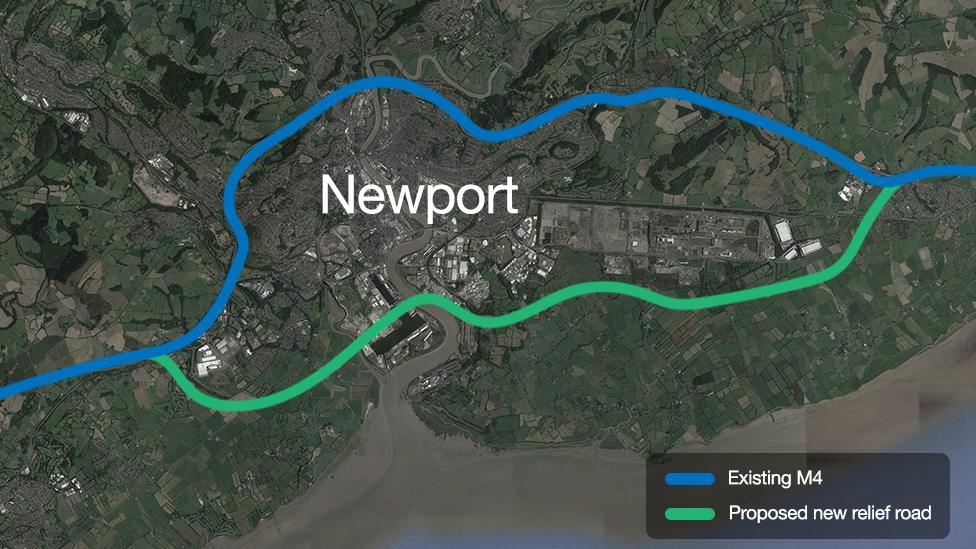
This map shows the route of the proposed £1.1bn M4 relief road
Economy Secretary Ken Skates, in a statement, said the port supported about 2,500 jobs and was worth £173m a year to the Welsh economy.
He said the business case had been reviewed and "continues to demonstrate that the project represents value for money".
Mr Skates added: "The enabling works would safeguard employment across the many sectors the port serves including steel, timber, agriculture, renewable energy generation and recycling."
Plaid Cymru backs a cheaper alternative, known as the "blue route", external, and called the minister's announcement "Labour's M4 bung".
The party's MP Jonathan Edwards said Plaid would oppose the black route when the assembly came to vote on the matter.
"We urge opposition parties, independents and Labour backbenchers who have opposed this scheme to join us when the time comes," he said.
Conservative economy spokesman Russell George said congestion was "tightening its grip on Welsh roads, and yet there doesn't seem to be a single Labour transport project running on time and within budget".
"As a result, Welsh taxpayers face a bill of almost £200m to cover the cost of the delays - money which could have been better spent on other schemes all over the country," he said.
Chris Sutton, of industry organisation CBI Wales, said the project had moved "one step closer" to delivery and any option other than the black route would be "tinkering around the edges".
"If we can see an end point, business will live with it," he added.
Richard Selby, director of Pro Steel Engineering in Caldicot, Monmouthshire, was hoping to benefit from work from the project and is disappointed with the two-year delay.
He said: "It's a massive leap in the right direction however there's a way to go until the public inquiry is complete so it's a case of one step at a time and what can the Welsh Government do to fill the void in work?"
Ian Rappel, chief executive of the Gwent Wildlife Trust, said it was confirmation of the escalation of cost it had been warning about while the arguments against "the most damaging road scheme" in environmental terms remained and without "any serious attempts at mitigation proposals for the road".
- Published28 April 2016
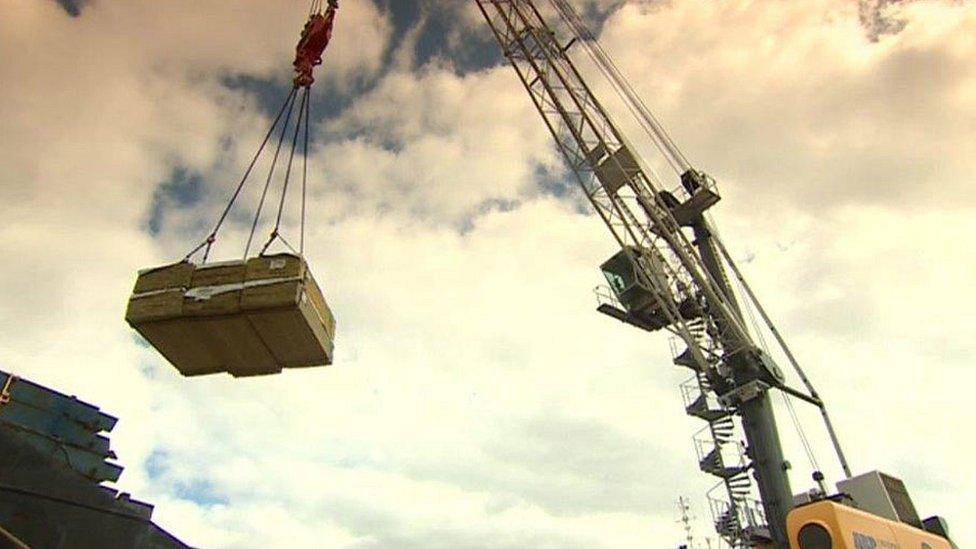
- Published4 September 2017
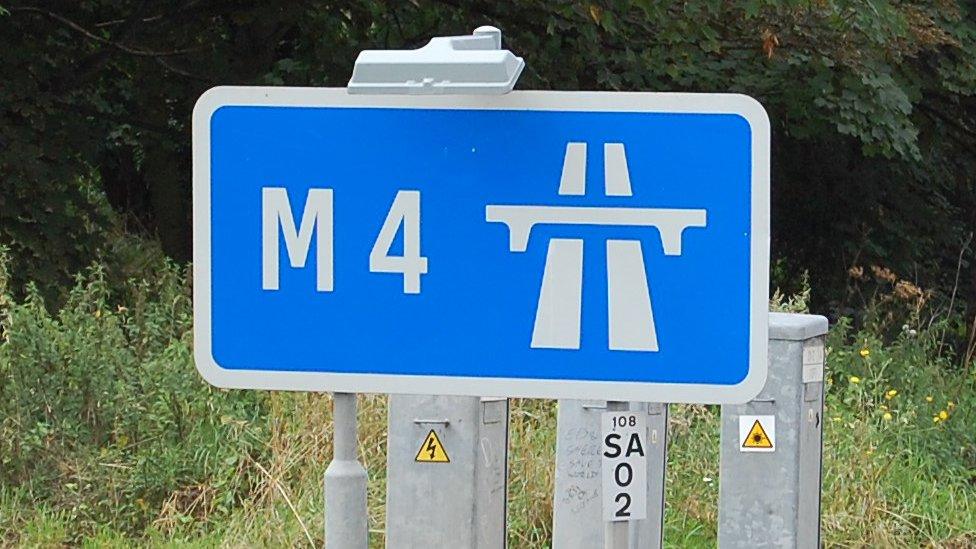
- Published28 November 2017
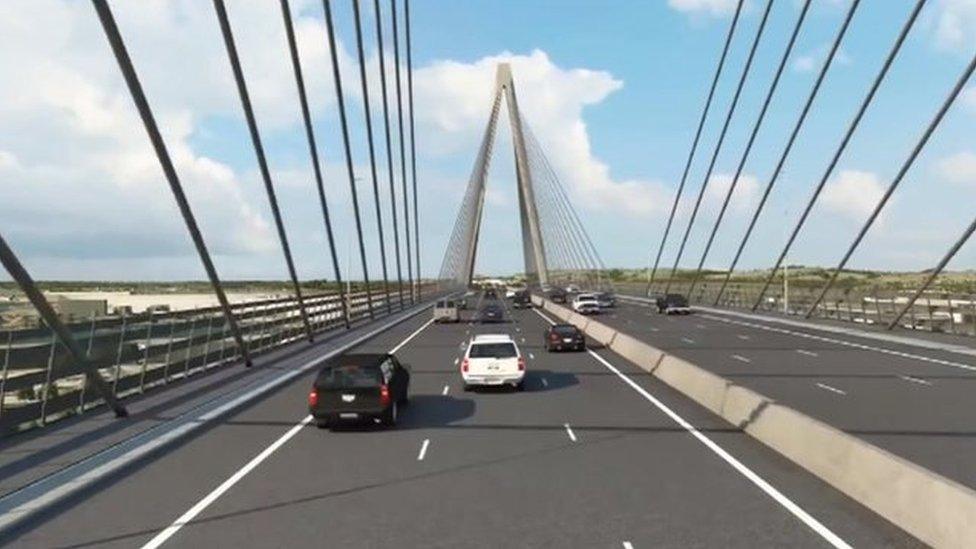
- Published27 September 2017
